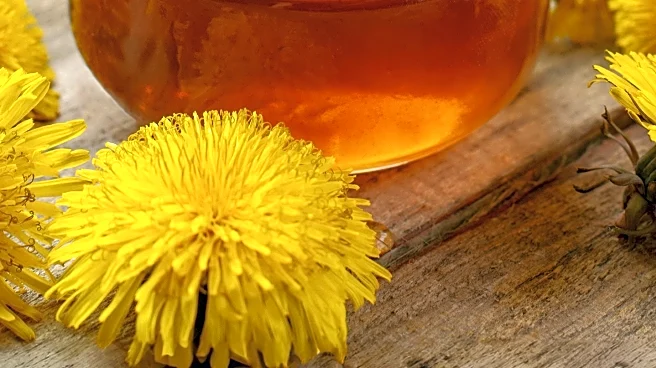What's Happening?
A recent clinical study published in the journal Cosmetics has highlighted the potential of Australian Jellybush honey extract as a natural ingredient for reducing post-acne scarring. The study, led by
researchers from Lucas Meyer Cosmetics by Clariant, in collaboration with Southern Cross Botanicals, investigated the effects of a 2% concentration of Jellybush honey extract on skin repair processes. The extract demonstrated significant reductions in inflammation and oxidative stress, while improving collagen production, which are crucial factors in scar development. In a double-blind clinical study involving 21 participants with acne scars, representing skin phototypes II through VI, the formulation containing Jellybush honey extract showed improvements in skin homogeneity, scar surface area, and scar dimensions across all skin types.
Why It's Important?
The findings of this study are significant for the skincare industry, particularly in formulating inclusive products that cater to diverse skin tones. Jellybush honey extract offers a plant-based alternative to conventional scar treatments, which can be costly and uncomfortable, especially for individuals with melanin-rich skin. The extract's ability to support healthy wound healing without overstimulation presents a therapeutic advantage in managing complex scarring patterns often seen in darker skin tones. This development could lead to more accessible and effective skincare solutions, reducing reliance on invasive procedures like lasers or chemical peels.
What's Next?
The study's results may encourage further research and development of skincare products incorporating Jellybush honey extract. Companies in the personal care industry might explore its use in formulations aimed at scar reduction and skin recovery. Additionally, the extract's performance across diverse skin tones could drive innovation in inclusive skincare products, addressing the needs of individuals with highly pigmented skin. As awareness of the extract's benefits grows, it may become a sought-after ingredient in the market, prompting collaborations between cosmetic companies and botanical researchers.
Beyond the Headlines
The study underscores the importance of considering skin color diversity in skincare formulation. Individuals with darker skin tones are more susceptible to inflammation-related hyperpigmentation and complex scarring, making the development of tailored treatments crucial. The extract's balanced activity in wound management highlights the potential for ethical and inclusive product development, promoting skin health without adverse effects. This approach aligns with the growing demand for natural and sustainable skincare solutions, reflecting broader cultural shifts towards holistic and personalized beauty care.









